The Explorer Spirit
By Melanie Padgett Powers
July 2024
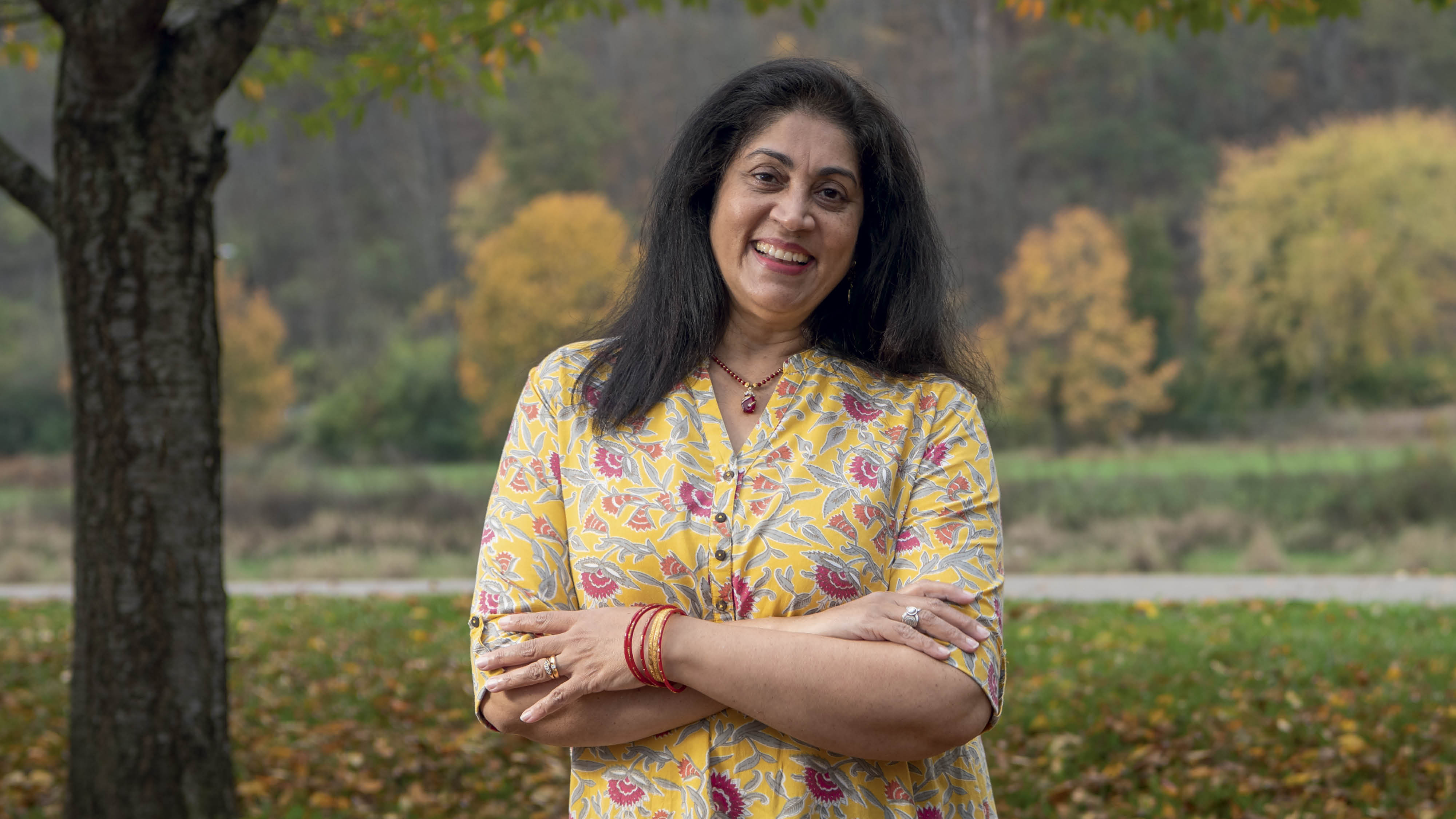
Photo by Ben Wirtz Siegel/Courtesy of Ohio University
“Don’t make eye contact.” That’s what Christine “Chris” Suniti Bhat’s older sister used to tell her when they were teenagers growing up in India. They both knew that if she made eye contact with a stranger or acquaintance, the person would begin to open up about their struggles in life and the girls would have trouble getting away.
Bhat, PhD, LPC, LSC, was made to be a counselor. “I was always the kid that people would confide in,” Bhat explains. She laughs as she remembers: “My sister would say, ‘If you don’t make eye contact, we’ll be just fine.’ She used to get very frustrated with me. … The signs [of a good counselor] were there from a young age.”
Bhat is professor and chair of the Department of Counseling and Higher Education in the Patton College at Ohio University in Athens, Ohio. She became the 73rd president of ACA on July 1, after joining the organization 20 years ago. She took a more active leadership role in ACA in 2012 when she became president of the Ohio Counseling Association. In 2017, she became president of the ACA division the Association for Specialists in Group Work (ASGW), and she later served a three-year term on the ACA Governing Council, representing ASGW, before running for ACA president.
Bhat has cherished being active in ACA because it has allowed her to focus her time and attention on helping the counseling profession thrive. “To me, that is super important — for counselors to be proud of who they are, for counselors to know that ACA supports them and supports the profession, for counselors to have a strong professional identity that allows them to work well in interdisciplinary teams.”
Focusing on what is best for the counseling profession will be Bhat’s overarching goal during her presidency. (To learn more about her presidential goals, see her article “Finding Pride and Purpose” in the July issue.)
A Belief in Education
Bhat grew up in Bengaluru, a huge city in the south of India. She is the youngest, with two older sisters and an older brother. They may not have had a lot of money, but it was a “loving, stable family,” she says. Her father was a high-ranking state government official, while her mother was a homemaker. “Both of my parents emphasized how important it was for women to be well-educated,” she says. “The importance of education was a very dominant value in our family, along with making the world a better place in whatever way we could.”
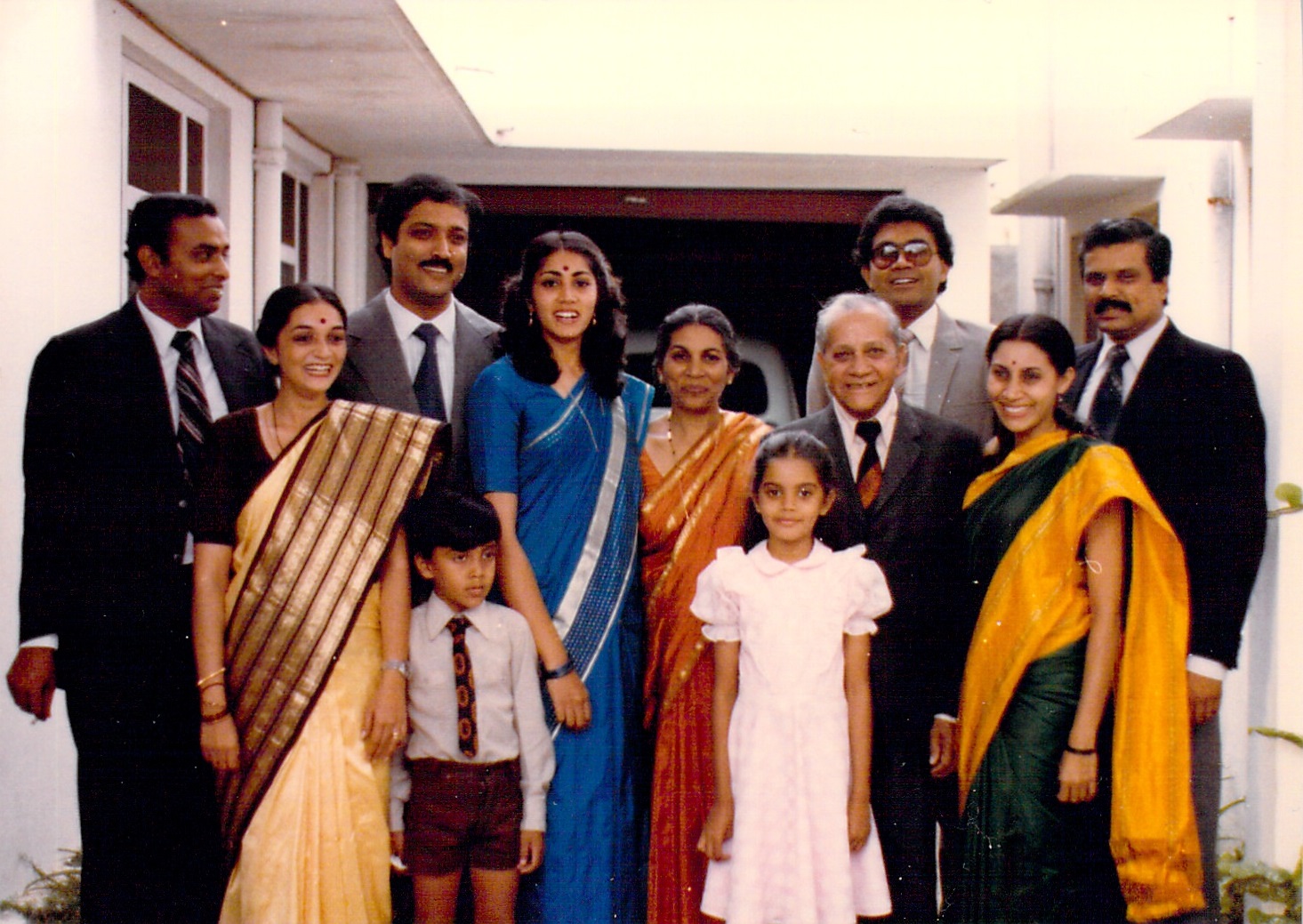
Bhat’s future as a counselor showed in other ways, too: “Being the youngest of four, with very opinionated older siblings, I learned to observe much more than talk — and sometimes it was hard to get a word in!” She became gifted at picking up nonverbal cues and being alert to changes in tone.
Bhat married her husband, Shiv, at age 21. The couple wanted to travel but didn’t have the means to go overseas simply for adventure or leisure. Instead, they decided to emigrate, so in 1992, with a 5-year-old son, the family moved to Melbourne, Australia, where Chris had a maternal uncle.
“We never had been there previously to visit, so it was a leap of faith,” she says. “I think Shiv and I are risk takers. We were willing — at least at that stage of our lives — to step out into the unknown.”
They later became Australian citizens, and their daughter was born in Australia. Bhat earned master’s degrees in psychology in both India and Australia, and she began to work as an organizational psychologist. (Neither of the two countries had counseling degrees at the time.) For many years, she supported chronically unemployed people through group work.
Another Adventure Awaits
After about nine years in Australia, Bhat and her husband decided to make another leap into the unknown and move to the U.S. But Bhat had to ask herself: “What will I do in the U.S.? What will my career look like?” She decided to lean into counseling and was accepted into Ohio University’s doctoral program in counselor education and supervision. Bhat acknowledges that she chose Ohio University because the professor who became her mentor, Tom Davis, PhD, answered her email asking about admission within 30 minutes of her sending it.
“I was drawn to counseling because I really believed that I wanted to be in ‘helping’ relationships with people, rather than my background as an organizational psychologist,” she says. “I wanted that person-to-person interaction, to see people change and thrive as I helped them.”
At first, it was a rough transition to Ohio, although their nephew, who lived nearby, and their niece, who lived in California, helped them get settled. The Bhats had always lived in big cities and were heading to their third country with only a stack of suitcases. The first thing that struck Bhat on the drive from the Columbus airport to Athens was how rural Southeastern Ohio was. She had never lived anywhere with so much open space.
“We were downsizing from a large home to a two-bedroom student apartment on campus. I was an international student earning a small stipend as a graduate assistant, with two children who were going into school,” she says. “It was tough; there was a lot of stress and heartache with that move. But during that time, I found love and kindness and support from so many.”
Bhat immediately loved her professors, fellow students and the doctoral program. “That really helped me figure out, ‘OK, I’m here. Let me focus on becoming the professional that I want to be and let me put other stuff aside.’”
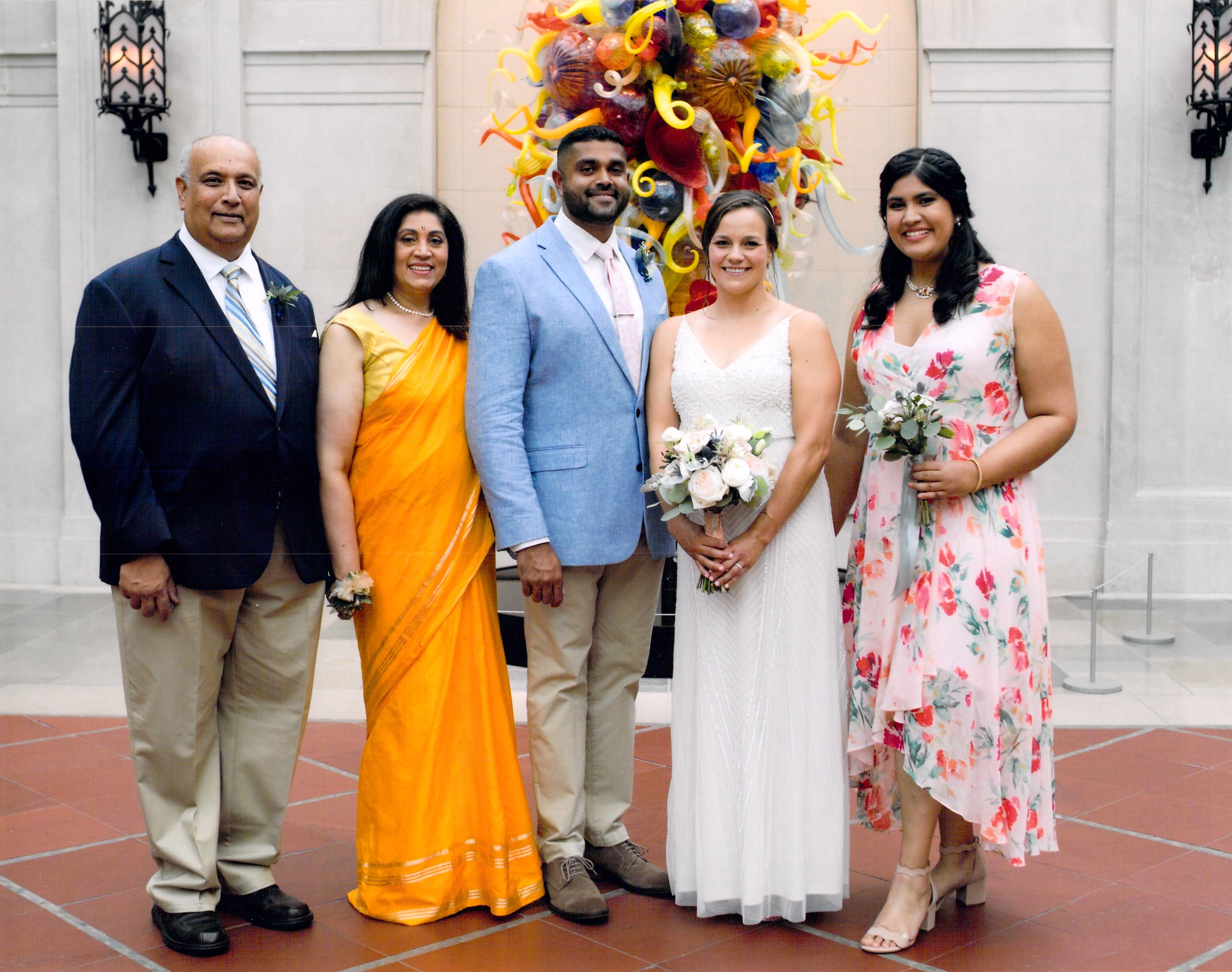
After she earned her doctorate in counselor education and supervision, Bhat was sure she wanted to live in a big city again. So, she accepted a faculty position at California State University, Long Beach. But it was quickly apparent that California was incredibly expensive to live in for a family of four. “I was there for three years, and in probably about the second year, I started to realize that living in Southern California was not going to be sustainable for our family from a financial perspective.”
However, Bhat was worried about moving her kids again. Her son was about to finish high school, and her daughter was in the fourth grade. Then, a counseling faculty position opened up at Ohio University. Bhat was hired in 2006. She was relieved that her children would be returning to a place they were already familiar with and where they had friends.
She laughs now when she remembers how shell-shocked she was when they first arrived in Ohio. “I ran away to a big city thinking that’s what I wanted. But let me tell you, after a few years in California, I yearned for the peace and the beauty of Southeastern Ohio. I’m very happy to be here. This is definitely home.”
A Passion for Teaching and Mentoring
Bhat had started her doctoral program because she wanted to become a better counselor. But she soon fell in love with teaching and mentoring. Over the past 20 years, that has been her focus.
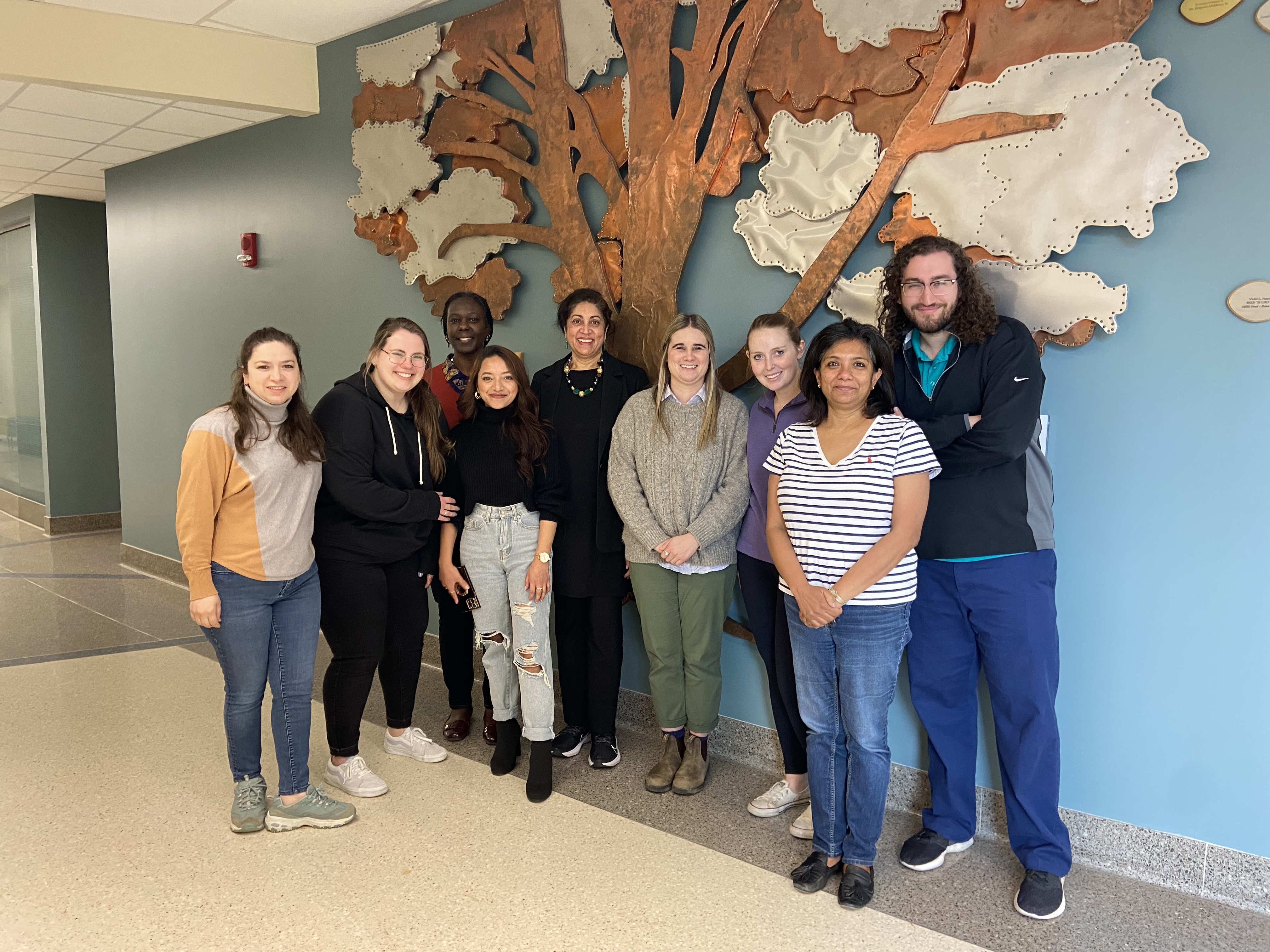
“I think that my work developing and helping shape future counselors and counselor educators has ripple effects in the profession because then those graduates go on to serve clients and counseling students,” she says. “I have the opportunity to influence the profession from a wider lens as a counselor educator.”
Bhat remains actively engaged in research, too. Earlier in her career she conducted research on cyberbullying prevention. Now, she focuses more on leadership and mentorship research and on positive psychological assets. She is drawn to the model of servant leadership, focusing on the people you’re leading and their needs and successes and on working for the greater good of the profession and clients.
“As I’ve gotten older, I’ve started to think about: What is it that we should be researching that makes our lives better? There’s a lot of focus on mental health diagnoses and what we need to do to prevent and treat them, but I’ve been wanting to spend more time thinking about what we can incorporate into our lives that will make our lives better and more fulfilling.”
Cherishing Family and New Opportunities
Bhat’s family continues to be an important focus in her life. Her daughter lives in California, where she is earning a doctorate in political science. Her son, a senior project manager with a construction firm, lives in nearby Columbus, Ohio, with his wife and their daughters, a 20-month-old and a newborn. “Being a grandparent is one of the greatest joys of my life,” Bhat says. “I love spending weekends in Columbus and getting lots of cuddle time.”
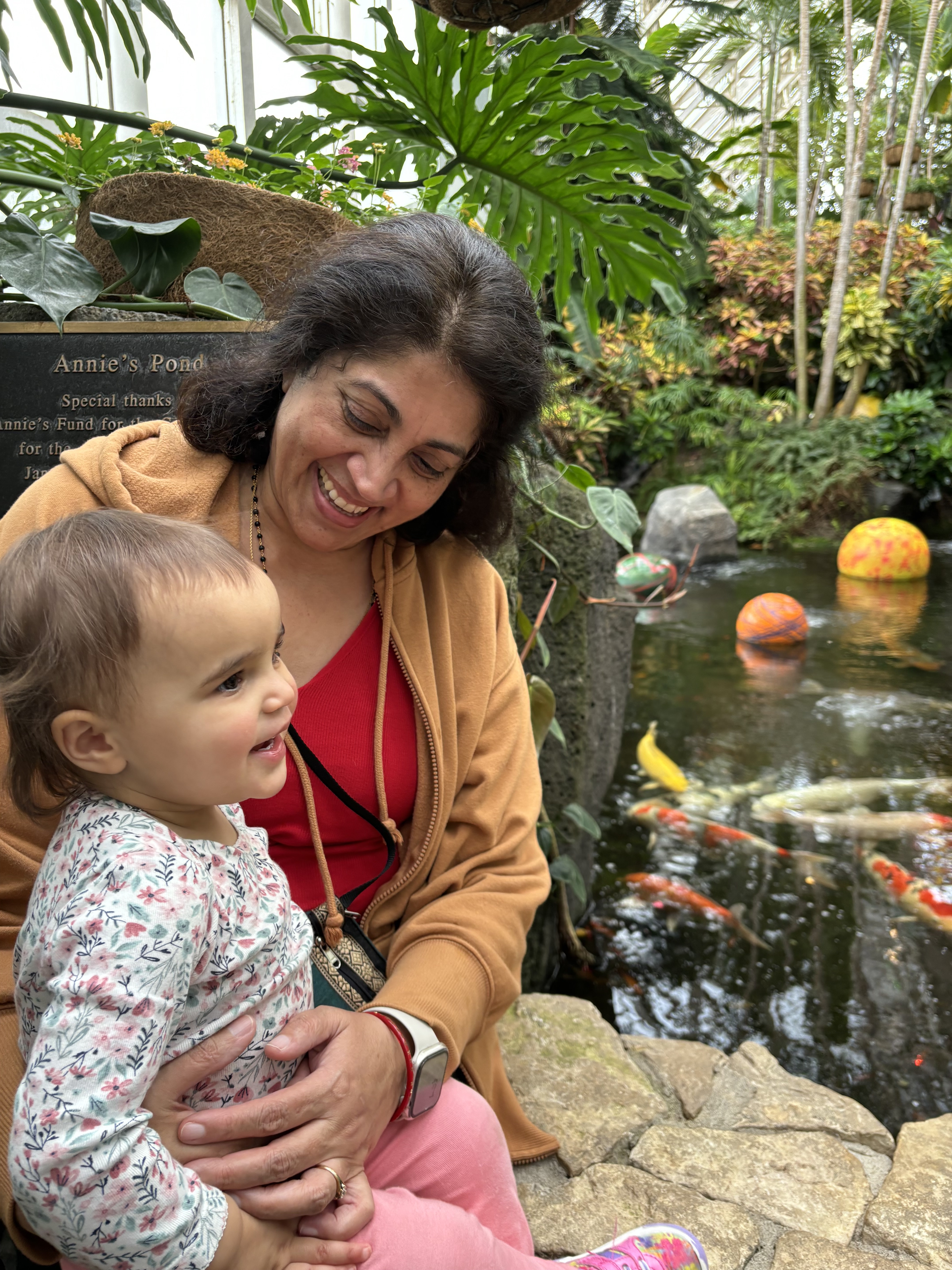
Bhat’s sisters and 98-year-old mother still live in Bengaluru, and her brother is in Australia. (Her father died in 1985.) Having family far away requires frequent video chats. “Family is very important to me,” Bhat says. “I love spending time with family and friends; I love good food, good conversation. This is what I find most meaningful — the connections and time with loved ones.”
Bhat’s life and career have taken a winding road through three countries on three continents, full of adventure, culture shock, a loving family and a rewarding career. She encourages other counselors and counseling students to take those risks and to say “yes” more than they say “no” to new opportunities.
“Earlier on in my life, I was so afraid of not knowing enough about new opportunities so I would say ‘no’ a lot,” Bhat says. She advises counselors to believe in themselves and have the strength to say: “I might not know everything about this new opportunity that has presented itself, but I have faith and self-efficacy; I can learn what I need to learn.”


